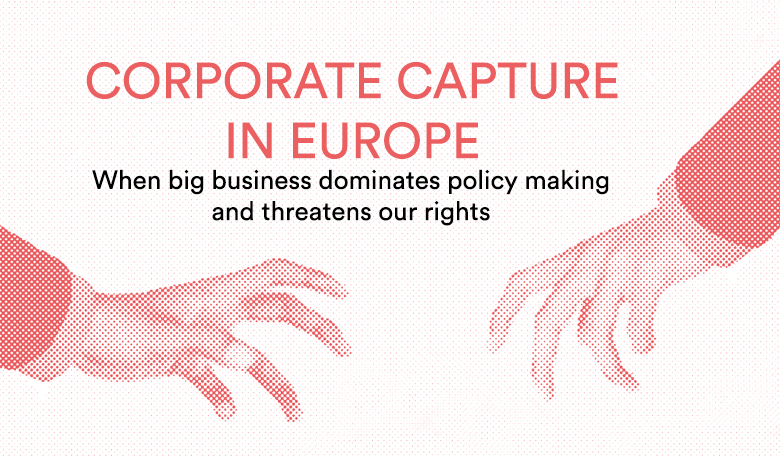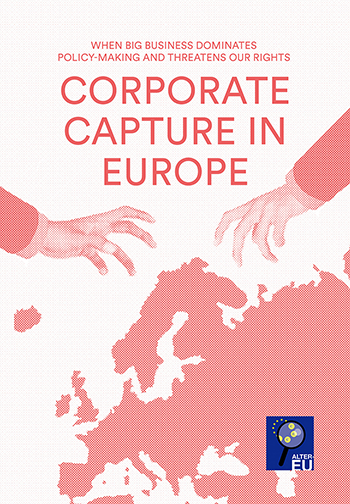This report examines the extreme and undue influence of big business on European Union (EU) and member state decision-making processes. It has been produced by the Alliance for Lobbying Transparency and Ethics Regulation (ALTER-EU) as a response to the distortions we witness in policy and law making at EU-level and across member states.
It shows how corporate capture has been behind the lack of action in the aftermath of the financial crisis, with banking regulation that continues to allow mega-mergers of banks, failing to tackle the “too big to fail” problem (see case study one). Similarly, the arms industry has influenced the agenda and objectives of the EU’s defence programs (see case study seven).
The phenomenon of corporate capture is not, however, limited to the EU level.
ALTER-EU’s broad membership has witnessed and challenged corporate capture of various national governments. Dieselgate, for instance, exposed the intimate connections between the German government and its national car industry, and how the German government acted as vehicle for the industry’s influence at EU level (see case study eight). Too often we find member states acting on behalf of their biggest national industries in Brussels, taking shelter under Council secrecy and avoiding public accountability.
«Corporate capture in Europe» includes eight case studies from the EU level and member states:
- The Banking Sector – Kenneth Haar, Corporate Europe Observatory
- Trade Policy and the Case of TTIP – Paul De Clerck, Friends of the Earth Europe
- The Gas Industry – Myriam Douo, Friends of the Earth Europe
- Tax Policy in the Netherlands – Jasper van Teeffelen, Lobbywatch
- The Pharmaceutical Industry – Rachel Tansey, Freelance writer and researcher
- Data Protection and Privacy Policies - Léa Caillère Falgueyrac, Freelance researcher
- The Arms Industry - Bram Vranken, Vredesactie
- Dieselgate and the German Car Industry - Nina Katzemich, Lobbycontrol
Beyond the case studies, the report intends to help readers to analyse and exposes other situations of capture and makes recommendations on how to start rolling back excessive corporate power.
You can find the full report here.
Short German version here.



